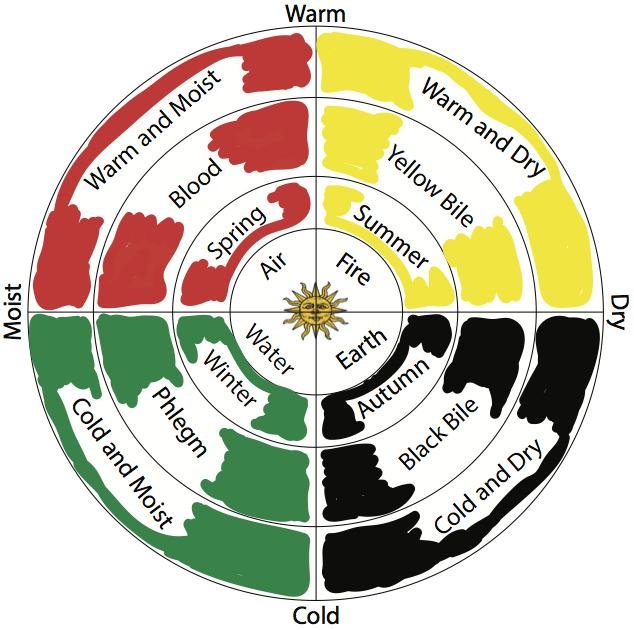Phlegmatic temperament: Specifications and lifestyle

TEHRAN — Iranian traditional medicine encompasses a diversity of knowledge about preventive medicine, remedies, and the preservation and promotion of good health.
It focuses on six key factors: food and drinks, climatic conditions and environment, physical activities and rest, psychiatric conditions including that of sadness, happiness, depression, and stress, sleep and wakefulness, absorbing key nutrients and ridding body from waste materials (sweat, urine, or feces).
It comprises orally transmitted knowledge and practices as well as thousands of written texts. The philosophy and traditional knowledge are highly respected and Iranians regard their traditional medicine as a defining part of their communal identity.
In the Iranian-Islamic traditional medicine the excess or lack of warmness and humidity define four essential temperaments of “Warm and Wet (sanguine or Damawiy)”, “Warm and Dry (choleric or Safrawiy)”, “Cold and Dry (melancholic or Saudawiy)” and “Cold and Wet (phlegmatic or Balghamiy)” respectively. The terms in the parentheses refer to four groups of material in the body (called “humors” or 'Akhlat') including blood which is hot and moist, phlegm which is cold and moist, bilious or yellow bile which is hot and dry and atrabilious or black bile which is cold and dry. Words written in italic show original Persian terms in the ancient literature.
Phlegmatic: Cold and Wet
People with phlegmatic temperament usually feel cold and run colder than other people.
They are light, fair and smoothed-complexioned and relatively speaking they have fine, glowing, radiant, and flawless skin. They have silky, straight, smooth and thin hair. They don't have much unwanted hair.
Their body parts are big. They are normally bulky and quickly gain weight with a body composition of larger proportion of fat rather than muscle tissue and they usually seem swollen. They take their time thinking, speaking and acting.
They oversleep and as they get up they feel they haven’t got enough sleep. They usually have trouble waking up and they wake up tired.
These people are prone to wake up with swollen feet, hands and puffy face specially after sleeping in the evening.
They feel dizzy and tired early morning particularly when it’s cold or they have consumed food or drinks with wet Mizaj such as yoghurt, sour food stuff or Doogh (a savory yogurt-based beverage popular in Iran).

They usually are more sensitive to cold and humid weather. They are sensitive to dairy products, sour foods, large amounts of water, and high-water-content foods and should cut back on them.
Due to the wetness of their bodies and brains, they tend to have a poorer and shorter memory compared to people of other temperaments, as wetness and coldness would result in decrease in transferring and storing data.
People with cold and wet Mizaj are endlessly patient and calm and can put up with people with all sorts of belief.
They expel fairly large amount of waste matter (urine, sweat, and feces) but the waste matter don’t have strong color or odor unless waste materials have built up in their bodies.
They don't have much strong pulse, neither do they have prominent veins. They also tend to suffer low blood pressure.
Seyed Mahdi Mirghazanfari, MD, holds a PhD degree in medical physiology and is an Iranian-Islamic traditional medicine researcher. He is also an assistant professor in AJA University of Medical Sciences, Tehran.
MQ/MG
Leave a Comment